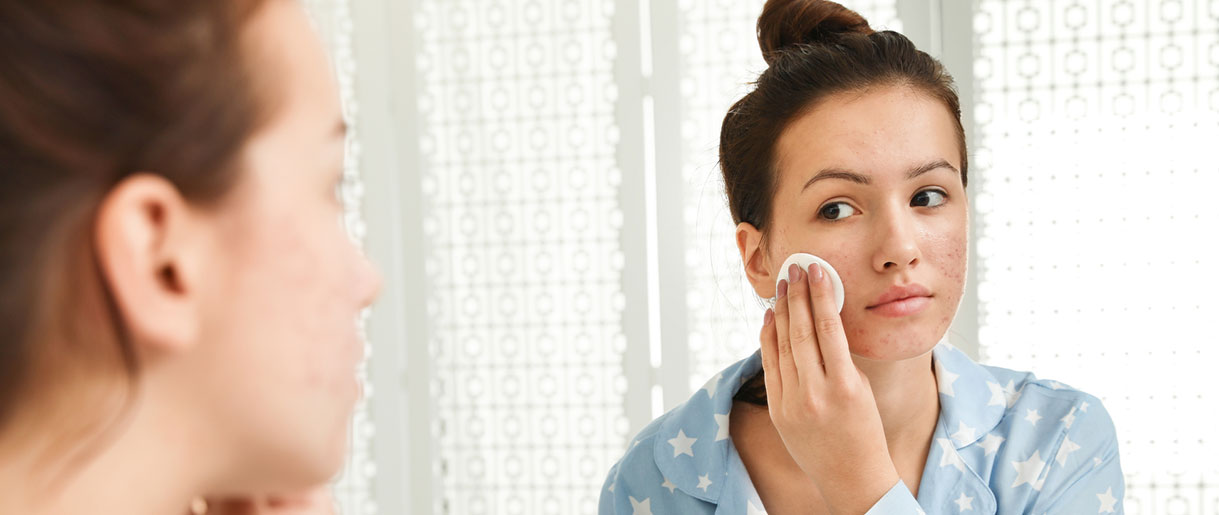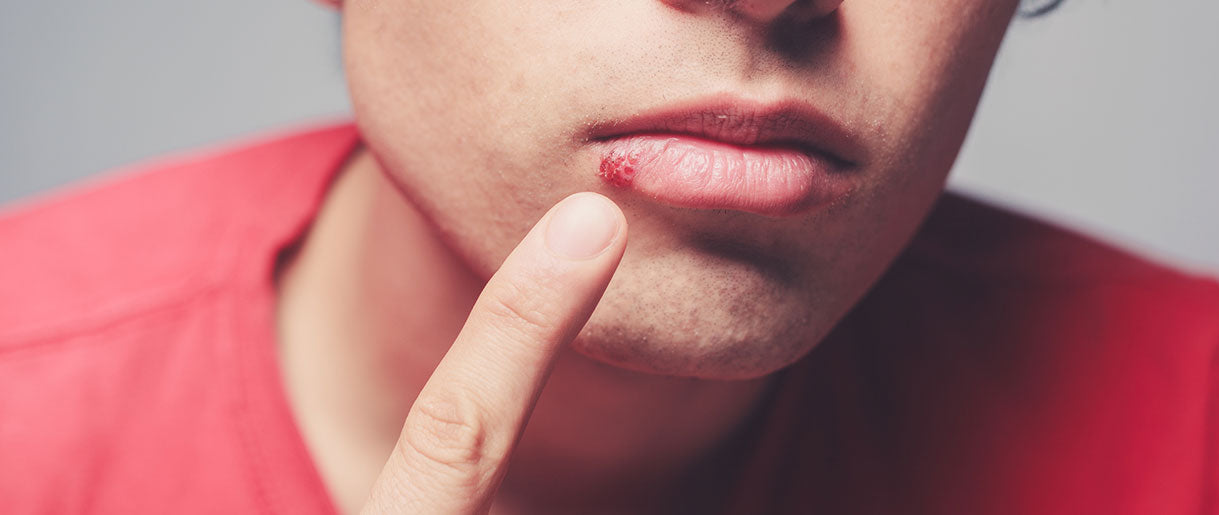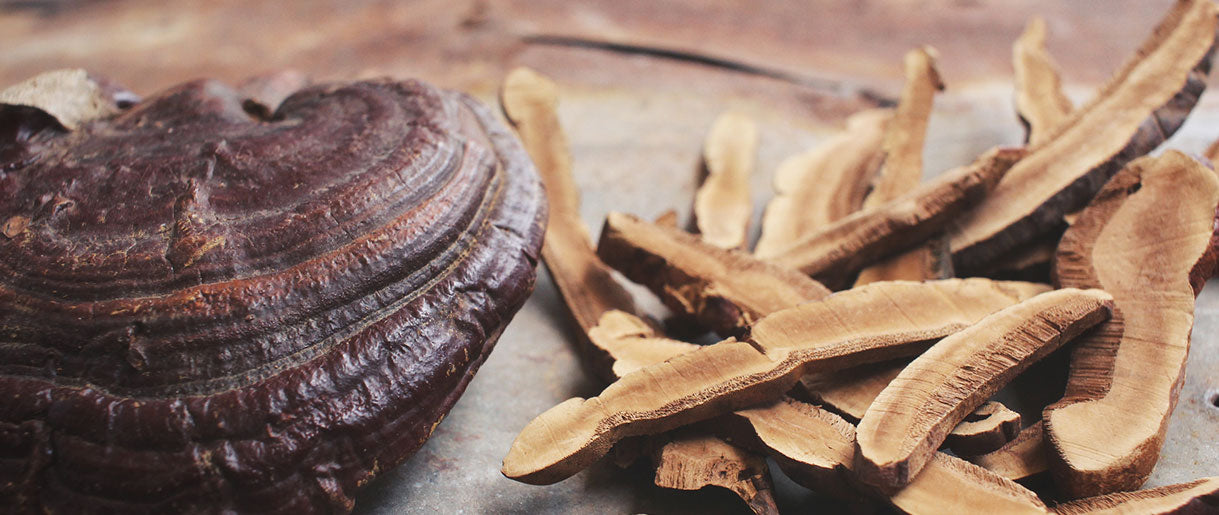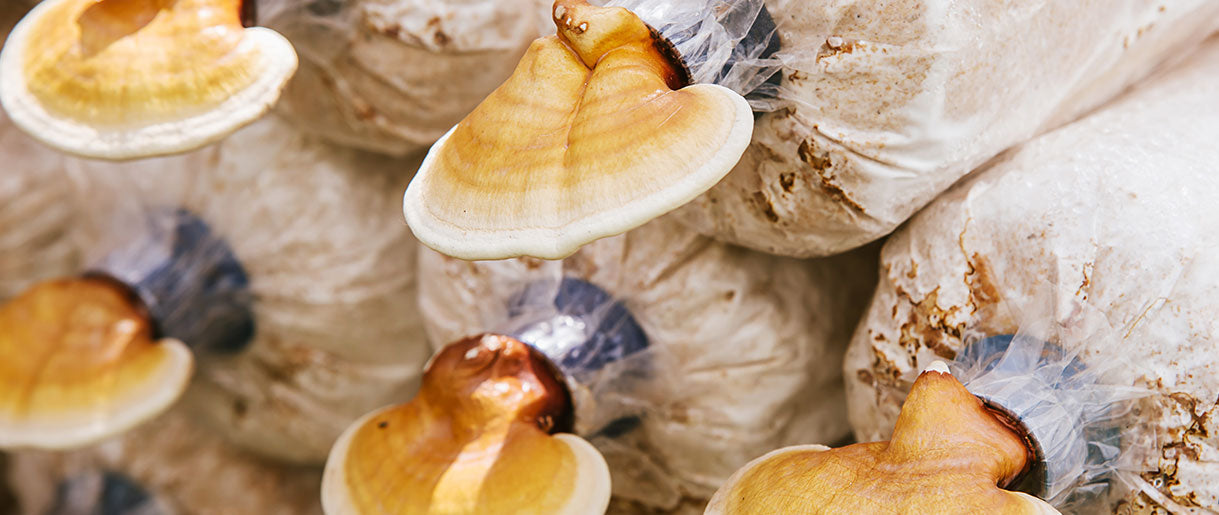If you're like most people, you experience anxiety at some point. Anxiety can be a significant nuisance, whether it's feeling panicky before an important presentation or simply being constantly worried about things outside of your control.
Luckily, there are natural remedies to ease the symptoms. Reishi is one of the best natural supplements for dealing with anxiety. Reishi products help the human system adapt to anxiety-inducing situations.
In this blog post, we'll discuss how reishi mushrooms can help relieve anxiety and provide tips on using them safely and effectively. Keep reading to learn more!
Reishi Mushroom Benefits: How The General Benefits Prevent Anxiety
Ganoderma lucidum is a medicinal superfood fungus with multiple health benefits. It is the most revered adaptogenic mushroom in Asian herbalism. Reishi grows in the wild in decaying tree stumps and logs.
Today the mushroom is commercially cultivated due to its growing demand. The mushroom has anti-inflammatory and antioxidant benefits. The mushroom is also widely used for promoting a good night's sleep in people with insomnia.
If the Reishi can promote better sleep, can its extract calm you down? Or does Reishi mushroom help with stress?
Anxiety affects many people, each trying to look for an effective treatment. Research studies show that Reishi is one of the best mushrooms for anxiety.
One of the best mushrooms for brain health, the reishi anxiety benefits are often associated with its ability to enhance the immune system, boost mental health, and function as a stress reliever. Let's see how Reishi's general benefits fight anxiety.
1. Reishi Diabetes Benefits And Anxiety

According to the CDC stats(1), diabetes affects 37.3 million people in the United States. Even more surprising is that the disease affects 1 in 10 people, and 1 in 5 people do not know that they have the condition.
Diabetes negatively impacts the immune system and wellness. However, people may not know that diabetes is also a leading cause of depression and anxiety.
Read More: See how Reishi fights depression.
Several human studies have explored the relationship between diabetes and anxiety. One study(2) concluded that Generalized Anxiety Disorder was present in 14% of diabetes patients. Moreover, researchers discovered elevated anxiety symptoms in 40% of diabetes patients.
A 2015 study(3) determined that nearly 19% of the 184 diabetic women had depression symptoms that would indicate clinically severe disorders, while 26.6% of them experienced anxiety symptoms that might indicate clinically essential disorders. A potentially significant amount of depression and anxiety symptoms were present in 14% of the study subjects.
Reishi also offers diabetes benefits, helping patients lower high blood sugar levels. By treating diabetes, Reishi provides a direct benefit that helps lower the risk of anxiety.
2. Reishi Blood Pressure Benefits And Anxiety
According to CDC statistics(4), 47% of the American population—more than 116 million people—have high blood pressure. However, very few people know hypertension can also impact their anxiety.
According to a 2015 study(5), hypertension and anxiety go hand in hand, with those who experience anxiety having a higher risk of developing high blood pressure than those who don't. Additionally, those with hypertension are more likely to experience anxiety than people without high blood pressure.
Reishi offers high blood pressure benefits, restoring blood pressure to its normal, healthy levels. By treating hypertension, Reishi reduces the risk of suffering from anxiety.
Read More: See how Chaga treats high blood pressure.
3. Reishi Hormone Balancing Benefits And Anxiety
Studies have linked hormone imbalance and anxiety. According to research, low progesterone and thyroid hormone levels in women can increase their anxiety and stress levels.
The good news, however, is that Reishi offers hormone-balancing benefits. The mushroom eliminates the risk of anxiety by ensuring all the body's hormone production is geared towards keeping your hormones balanced.
4. Reishi Allergy Benefits And Anxiety
Research has linked allergies and anxiety. One study(6) concluded that self-reported allergies were highly correlated with anxiety disorders. Compared to participants without a history of anxiety disorders, more study participants with recurrent anxiety disorders self-reported allergies.
Luckily for people with allergies, Reishi has allergy benefits. By treating—and preventing—allergies, the mushroom reduces the risk of suffering from anxiety.
5. Reishi Skin Benefits And Anxiety

According to the American Academy of Dermatology(7), about 84.5 million Americans—about 1 in 5—were impacted by skin problems. Research has shown that a relationship exists between skin problems and anxiety.
In a 2015 research study(8), scientists revealed that individuals with common skin illnesses had considerably higher rates of clinical depression (10.1 percent vs. 4.3 percent), anxiety disorder (17.2 percent vs. 11.1 percent), and suicidal ideation (12.7% vs. 8.3 percent) than controls. In the study, patients with psoriasis had the highest risk for anxiety disorders.
Luckily, Reishi has skin benefits. Reishi lowers the risk of anxiety by reducing the risk of skin diseases and helping in the treatment process. Consuming reishi mushroom also boosts immune function, further enhancing the body's ability to reduce its risk of skin issues.
6. Reishi Cancer Benefits And Anxiety
Research has shown that there is a correlation between cancer and anxiety. A research study conducted in 2014(9) concluded that anxiety and depression were significantly correlated with the kind of cancer and type of treatment. Patients with breast and stomach cancer were more likely to have anxiety and depression than other cancer patients, and this higher frequency was seen in those who only received chemotherapy.
A second research study conducted in 2021(10) determined that all cancer patients had a 23.4 percent prevalence of depressive symptoms and a 19.1-19.9 percent prevalence of anxiety symptoms, respectively.
Luckily, the mushroom reishi has cancer benefits. Even better, the two mushrooms lower the side effects of cancer treatment. This helps reduce the risk of cancer disease leading to anxiety.
What Medicinal Mushrooms Are Beneficial For Anxiety?
Medicinal fungus for anxiety and chronic fatigue syndrome (which often causes anxiety) is not new. When it comes to the mushroom supplement for anxiety discussion, Lion's mane and Reishi are among the two most commonly used mushrooms.
Read More: See the best mushrooms for mental health.
It is, however, worth noting that the anti-anxiety effect is not just limited to reishi powder and lion's mane. There are other medicinal mushrooms for anxiety.
A good example is cordyceps, an edible mushroom with numerous benefits. There is evidence showing that the cordyceps mushroom helps eliminate anxiety.
Reishi, Lion's mane, and cordyceps mushrooms are rich in ergothioneine and potassium. These compounds reduce oxidative stress and inflammation while also regulating nerve signals. Insufficient levels of potassium and ergothioneine increase the risk of depression.
Read More:See how Lion's mane fights depression.
What Are The Benefits Of Reishi For Depression And Anxiety?

This highly prized elixir of immortality is linked with calming and stress-reducing abilities. Chinese Taoist monks have been using the herb to transform negative energy in the body and cultivate spiritual energy. Reishi is thought to clear karmic obstacles and open up the crown chakras.
The reasons that make Reishi the best mushroom for anxiety and depression have been proven in various studies and recorded in numerous research articles, including the ones listed below:
Study #1: Calming Effect Of Reishi Mushrooms
A pilot clinical trial study(11) showed statistically significant improvements in quality of life using Reishi. Study groups reported reduced anxiety and depression and enhanced physical well-being. They noted that they benefited from the effect of the calming mushrooms.
Read More: See how Lion's mane fights anxiety.
Study #2: Stress Lowering Capacity Of Reishi Mushrooms
Another study indicates that the mushroom's stress-lowering capacity(12) may be attributed to its bioactive compounds, triterpenoids, and polysaccharides.
In the study, these compounds increased the sense of well-being and improved the symptoms of emotional disturbance, fatigue, and irritability.
Study #3: Mood Improvement Benefits Of Reishi
So, does Reishi improve mood? A recent 2020 study says it does(13)! Regular use of Ganoderma showed higher happiness levels, including improvements in pain and symptoms of depression. It also reported that users experienced satisfaction with life quality.
Reishi mushroom supports the adrenals, the tiny glands at the top of your kidney. Any stressful situation in our life leads to cortisol release, the stress hormone, from the adrenals.
Having too much cortisol in the body is also unhealthy. Long-term elevated cortisol levels can cause depletion of serotonin and dopamine—the happy hormones
But does Reishi reduce cortisol? Reishi is a good mushroom for anxiety and stress—this means a dip in cortisol levels as well.
Studies #4 And #5: Reishi Helps With Depression Treatment
Water-soluble extracts from the mycelium of the Reishi mushroom have potential antidepressant actions in animal models. This 2013 study(14) was based on a forced swimming test, the most widely used paradigm in rodents for screening depression.
Many antidepressants reduce immobility in the test. Like antidepressants, Reishi also significantly reduced immobility in the study.
Depression is also related to increased oxidative stress. Neurons in the brain are prone to oxidative damage, and people with depression have lowered antioxidant defenses.
Reishi has potent antioxidant and anti-inflammatory effects. A two-week oral administration of the mushroom or its extracts showed a decline in oxidative stress. The antioxidant and neuroprotective properties of the mushroom could contribute to improvements in depression symptoms.
Ganoderma extracts have dose-dependent antidepressant-like effects(15)on test subjects. While consuming Reishi is insufficient to cure depression, the mushroom can improve the symptoms.
Key Takeaways
We live in a fast-paced world where financial strain and psychological distress are increasing daily. This modern environment takes a toll on our bodies and will exacerbate stress and anxiety.
While people may visit the doctor looking for medications that can help treat anxiety, few people want to depend on pills. This is one of the reasons many people are turning to holistic health solutions. Reishi is a popular option for people looking for natural anxiety solutions.
You can add reishi mushroom powder to your favorite recipes and beverages. Wind down with a cup of the functional mushroom to enjoy the benefits of Reishi for anxiety.
In this post, we've explored research on Reishi and anxiety. We hope you try out this natural remedy. Let us know how it goes in the comments!
References
- The Facts, Stats, and Impacts of Diabetes, (1) https://www.cdc.gov/diabetes/library/spotlights/diabetes-facts-stats.html
- Prevalence of anxiety in adults with diabetes: a systematic review, (2)https://pubmed.ncbi.nlm.nih.gov/12479986/
- Type 2 Diabetes and Anxiety Symptoms Among Women in New Delhi, India (3)https://www.ncbi.nlm.nih.gov/pmc/articles/PMC4605173/
- Facts About hypertension, (4)https://www.cdc.gov/bloodpressure/facts.htm
- Association between anxiety and hypertension: a systematic review and meta-analysis of epidemiological studies, (5)https://www.ncbi.nlm.nih.gov/pmc/articles/PMC4411016/
- Links Between Anxiety and Allergies: Psychobiological Reality or Possible Methodological Bias?, (6)https://www.ncbi.nlm.nih.gov/pmc/articles/PMC3752790/
- BURDEN OF SKIN DISEASE, (7)https://www.aad.org/member/clinical-quality/clinical-care/bsd
- The Psychological Burden of Skin Diseases: A Cross-Sectional Multicenter Study among Dermatological Out-Patients in 13 European Countries, (8)https://www.ncbi.nlm.nih.gov/pmc/articles/PMC4378256/
- Prevalence of depression and anxiety among cancer patients, (9) https://www.ncbi.nlm.nih.gov/pmc/articles/PMC4143739/
- Depression and Anxiety in Patients With Cancer: A Cross-Sectional Study, (10)https://www.ncbi.nlm.nih.gov/pmc/articles/PMC8081978/
- Spore Powder of Ganoderma lucidum Improves Cancer-Related Fatigue in Breast Cancer Patients Undergoing Endocrine Therapy: A Pilot Clinical Trial, (11)https://pubmed.ncbi.nlm.nih.gov/22203880/
- A Randomized, Double-Blind and Placebo-Controlled Study of a Ganoderma lucidum Polysaccharide Extract in Neurasthenia, (12)https://pubmed.ncbi.nlm.nih.gov/15857210/
- Ganoderma lucidum Effects on Mood and Health-Related Quality of Life in Women with Fibromyalgia, (13)https://pubmed.ncbi.nlm.nih.gov/33265969/
- Antidepressant-like effects of a water-soluble extract from the culture medium of Ganoderma lucidum mycelia in rats, (14)https://www.ncbi.nlm.nih.gov/pmc/articles/PMC3879659/
- CNS antidepressant, anxiolytic and analgesic effects of Ganoderma applanatum (mushroom) along with ligand-receptor binding screening provide new insights: Multi-disciplinary approaches, (15)https://www.sciencedirect.com/science/article/pii/S2405580821001564










Let Us Know Your Comments